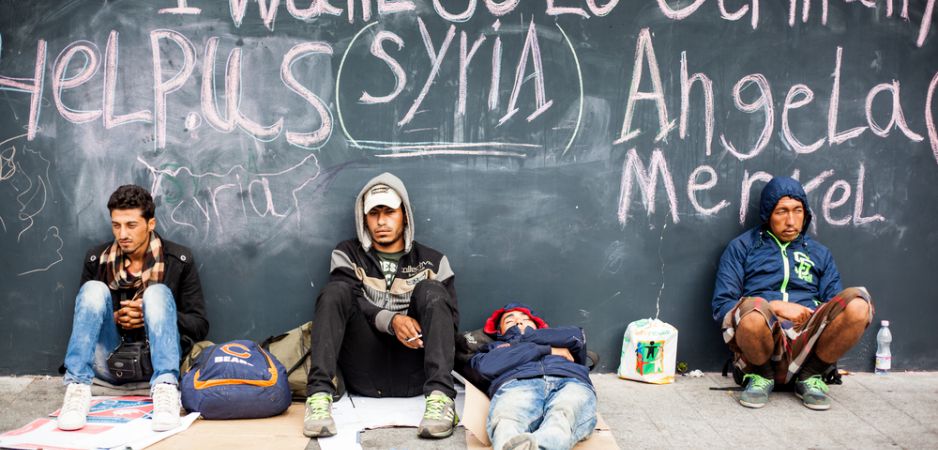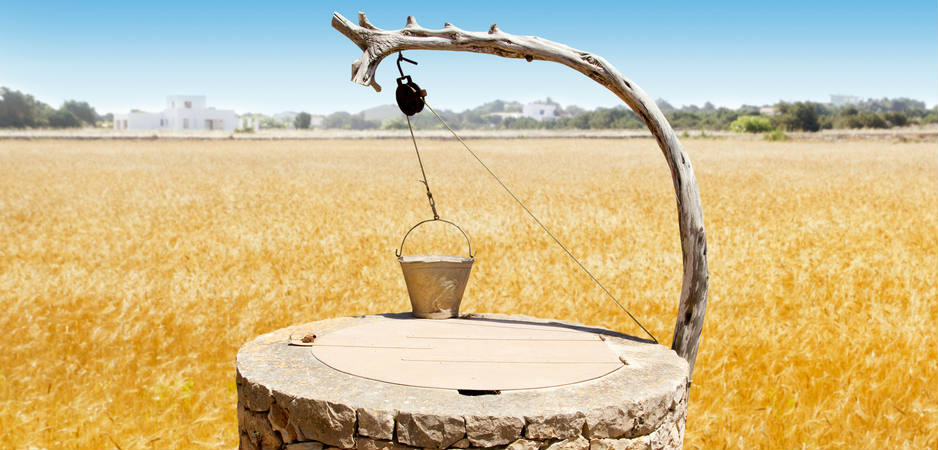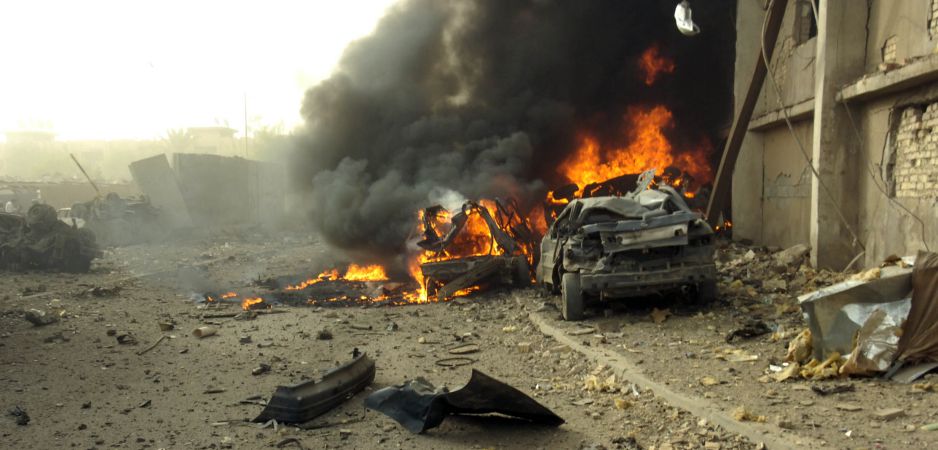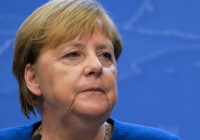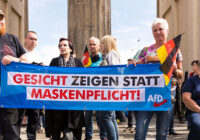Immigrants once contributed greatly to Germany and are exactly what the aging country with its plummeting birth rates needs.
Angela Merkel is creating history. “Mama Merkel” has thrown open the doors of her once racially homogenous country to thousands fleeing to Europe. The refugee crisis caused by violence in the Middle East and North Africa is leading to a migrant crisis in Europe. Germany is taking in 800,000 this year. David Cameron announced that Britain would take in 20,000 by 2020, the same number Munich received last weekend. Already, nearly 12% of Germany’s 82.5 million people, or nearly 10 million, are immigrants. Germany, more than the US, is now the refuge for the tired and poor “huddled masses yearning to breathe free.”
Since World War II, Germany has had a bad press. It has been associated with Adolf Hitler, the Nazi Party, “Sieg Heil” and the horrific concentration camps where Jews, gypsies and homosexuals met their grisly end. Yet Germany has been unique in confronting its past. German guilt and relentless soul searching are legendary. Germans are determined not to repeat the horrors of their past. The renovated Reichstag building that houses the German parliament is a good metaphor for the country. It is open to everyone, including tourists, and has a glass dome that allows a view of parliamentary proceedings. It is clear that Germans are serious about creating a more democratic, transparent and equal society.
In contrast, Britain dishonestly glorifies its imperial past. The British engaged in conquest the Nazis could only dream of. As The Economist points out, China and India were the two biggest economies for almost all of the past 2,000 years and comprised more than 50% of the world GDP until 1820. Once the British East India Company took over, it forced Indians to grow opium, which was duly exported to China. Britain grew rich by robbing its colonies. Henry Charles Carey, Abraham Lincoln’s chief economic adviser, pointed out in 1853 that the British East India Company caused the death by starvation of many millions of Indians. Other imperial powers were no better. The Belgians were the worst of the lot and their terrible record of torture, dismemberment and slaughter in Congo still evades scrutiny. Those who single out Germany for blame forget that Winston Churchill shared many of Hitler’s beliefs.
On March 18, 1931, Churchill gave a thundering speech in the Royal Albert Hall. He declared: “Our fight is hard. It will also be long. We must not expect early success. The forces marshalled against us are too strong. But win or lose, we must do our duty.” This was not a speech prophesying World War II. This was a ferocious defense of the British Empire of India. It was a condemnation of the appeasement of Mahatma Gandhi. Churchill staunchly believed that Indians were untermenschen who did not deserve freedom or equality. His actions during World War II led to the Bengal Famine of 1943 in which 3 to 5 million people starved to death. Churchill responded to reports of mass starvation by asking why Gandhi hadn’t died yet.
Britain, France and Belgium were on the winning side in World War II. Their imperial past has never been discredited. In contrast, Germany tasted the bitterness of defeat. Ideas that led to Germany’s destruction were consigned to the dustbin. This new Germany is not without its problems. Extreme right groups still exist and PEGIDA, the anti-Islamist group, is popular in Dresden and other parts of former East Germany. Germany was inflexible in dealing with Greece. Yet when it comes to refugees and migrants, Germany is demonstrating a maturity and wisdom that other countries could learn from.
Germany has experienced mass migration before. Contrary to the bogus myth of the Nazis, Deutschland has never been ethnically pure. Too many armies have marched through its land and far too many farmers, tradesmen and merchants have followed suit. When the Thirty Years’ War broke out between Catholics and Protestants in 1618, other European countries joined in, including powers on the periphery such as Tsarist Russia and Ottoman Turkey.
Marauding armies ravaged much of Germany. They sacked castles, villages and towns along their way. Famine and pestilence stalked the land. Persecution was rampant. Witch-hunting increased as people sought to blame elderly women with supposedly supernatural powers for their misfortunes. Historians estimate that 25% to 40% of the population of German states perished. Some states and regions lost half to two-thirds of their people.
The Thirty Years’ War ended with the 1648 Treaty of Westphalia that gave birth to the principle of state sovereignty that continues to dominate the international system till today. This treaty also brought an end to religious wars in Europe even if it did not end persecution. Louis XIV of France instituted dragonnades, a policy of looting and occupying Huguenot homes. Eventually, he declared Protestantism illegal and Prussia’s Great Elector Frederick William welcomed Huguenots to rebuild his war ravaged nation. These immigrants went to become some of Germany’s greatest intellectuals, engineers and businessmen. Today, the Middle East is going through its version of the Thirty Years’ War and Germany is experiencing an influx of new people again.
 Immigrants are exactly what Germany needs. Its birth rate is now the lowest in the world. It is aging dramatically and its workforce is shrinking. The generous welfare system that was once pioneered by Otto von Bismarck is under pressure. The Mittelstand, Germany’s fabled family-owned small and mid-sized businesses, operate out of small towns. They are the engine of the German economy, producing 52% of the GDP, accounting for 19% of its exports and employing 15.5 million workers. Yet most Mittelstand companies were founded a century or more ago when German universities were blazing new paths in physics, chemistry and engineering. The young Albert Einstein turned up with red roses for Max Planck and Walther Nernst at the Zurich train station to accept their offer of a prestigious position in Berlin. The Golden Twenties awaited Einstein. Berlin was a melting pot for scientists, artists and intellectuals. The rise of the Nazis destroyed the city from which it is only now beginning to recover.
Immigrants are exactly what Germany needs. Its birth rate is now the lowest in the world. It is aging dramatically and its workforce is shrinking. The generous welfare system that was once pioneered by Otto von Bismarck is under pressure. The Mittelstand, Germany’s fabled family-owned small and mid-sized businesses, operate out of small towns. They are the engine of the German economy, producing 52% of the GDP, accounting for 19% of its exports and employing 15.5 million workers. Yet most Mittelstand companies were founded a century or more ago when German universities were blazing new paths in physics, chemistry and engineering. The young Albert Einstein turned up with red roses for Max Planck and Walther Nernst at the Zurich train station to accept their offer of a prestigious position in Berlin. The Golden Twenties awaited Einstein. Berlin was a melting pot for scientists, artists and intellectuals. The rise of the Nazis destroyed the city from which it is only now beginning to recover.
Refugees and migrants will bring Germany some of its oomph back. They are entrepreneurial risk takers from different cultures. They will not only provide the workers that Germany needs, but also the entrepreneurs it is missing. They will make Germany diverse and dynamic. Barely a few months ago, the Greek debt crisis made Merkel appear harsh and unforgiving. Now, she is Mama Merkel, a female leader of courage and compassion offering a new vision for Germany and Europe. The land of Bach, Kant and Goethe is getting its mojo back.
*[You can receive “The World This Week” directly in your inbox by subscribing to our mailing list. Simply visit Fair Observer and enter your email address in the space provided. Meanwhile, please find below five of our finest articles for the week.]
[seperator style=”style1″]Immigrants in Germany Present Five Challenges and Six Opportunities [/seperator]
Aging Germany is likely to overcome the challenges and benefit greatly from the influx of immigrants, given its experience and economic strength.
Many of my non-German friends ask me how are we handling the huge numbers of immigrants coming to Germany and how will we continue to do so in the future. A large amount of immigrants are asylum seekers from Syria and Iraq, but many are economic migrants from the Balkan states and Africa. African immigrants, such as those from Libya, end up reaching Germany via Italy after an often hazardous voyage across the Mediterranean Sea.
In 2015, Germany expects to take in 800,000 refugees. On first impression, this seems impossible. The stress on German society and politics might prove to be unbearable. However, after reading a fair bit and interacting with a number of people, I have come to a different view. We will be able to handle the situation better than most expect. Germany will benefit from the influx of immigrants despite all the risks… Read more
[seperator style=”style1″]What Do You See When Faced With Images of Human Suffering?[/seperator]
The image of a dead 3-year-old boy spurs debate over how the world handles the refugee crisis.
It may appear that we have seen it all, at the tumultuous start of our young century. The planes hitting the Twin Towers in New York; the devastation left in the wake of earthquakes and tsunamis in Indonesia and Japan; people wreathing in pain following chemical attacks in Syria and Kurdistan; children being passed over barbed-wire fences in Hungary by desperate parents fleeing war in Syria; and live immolations and beheadings by the Islamic State (IS).
With information becoming ever easier to capture and disseminate due to the ubiquity of social media and the 24-hour news cycle, there is hardly a dearth of witnesses to humankind’s most inhumane moments.
Yet some images are more powerful than others. There is hardly anyone who is able to forget Nick Ut’s haunting image of a young girl scorched by napalm, which became the condemnation of the Vietnam War. Or Kevin Carter’s devastating image… Read more
[seperator style=”style1″]Life in Gaza: From a Palestinian Teenager[/seperator]
A solution to Gaza’s woes must be found. Otherwise the youth will draw the shortest straw.
Over one year has passed since the 2014 Gaza War. With mass death and destruction during those fateful days, the events after the conflict have been much worse.
Once the violence had ended, Palestinians were optimistic about what the future would hold. It was clear to us that the arsenal Israel used against Gaza was overwhelming—on a scale we had never experienced before, which made us think that things could only get better. After all, how much worse could it get?
Unfortunately, it wasn’t to be. Gaza is still under lock and key, and it is only a matter of time before yet another war blows the bombarded territory to smithereens.
Israel must stop its policy of going to war every couple of years. I am 18 years old, and it is clear to me that the three Israeli wars on Gaza have failed. War has not changed anything; it has only made… Read more
[seperator style=”style1″]The Improbability of a Water War in South Asia[/seperator]
Water wars in South Asia are unlikely due to well-etched treaties and economic compulsions.
If there is ever to be a Third World War, many believe it will be fought over water, with South Asia serving as the flashpoint. The region houses a quarter of the world’s population and has less than 5% of the global annual renewable water resources. Low water availability per person and high frequency of extreme weather events, including severe droughts, further increase the vulnerability of the area.
In this region, India, Pakistan, Bangladesh, Nepal and Bhutan depend on rivers originating in and passing through foreign territory. China holds an advantageous position, as two of South Asia’s most expansive river systems (the Brahmaputra and the Indus) originate from the glaciers in Chinese-controlled Tibetan plateau. However, for all these countries, more is turning out to be less thanks to the increased water usage, coupled with the expansion of agriculture, industry and the energy sector.
Estimates suggest that India, Pakistan, Bangladesh and North China collectively use… Read more
[seperator style=”style1″]Islamist Violence and the Role of Ideology[/seperator]
What can history teach us about jihadist groups such as the Islamic State?
“No, we must be clear. The root cause of the threat we face is the extremist ideology itself.” British Prime Minister David Cameron’s recent speech in Birmingham represents a direct political intervention in the increasingly urgent debate as to what really lies behind the phenomenon of Islamist violence. Beyond the tiny numbers of Brits who are being sucked in, that violence takes the form of insurgencies and terrorist groups operating from West Africa to the Philippines.
It represents a risky deviation from the standard political line in the United Kingdom that “Islam is a religion of peace,” although it is not actually incompatible with it. Cameron is hoping that the public will be able to grasp the crucial distinction between Islam and Islamism.
In one sense, Islamism is a new phenomenon, a political movement surging into the void left by the rapid retreat of alternative visions of utopian transformation toward the end of the last… Read more
The views expressed in this article are the author’s own and do not necessarily reflect Fair Observer’s editorial policy.
 We bring you perspectives from around the world. Help us to inform and educate. Your donation is tax-deductible. Join over 400 people to become a donor or you could choose to be a sponsor.
We bring you perspectives from around the world. Help us to inform and educate. Your donation is tax-deductible. Join over 400 people to become a donor or you could choose to be a sponsor.
Support Fair Observer
We rely on your support for our independence, diversity and quality.
For more than 10 years, Fair Observer has been free, fair and independent. No billionaire owns us, no advertisers control us. We are a reader-supported nonprofit. Unlike many other publications, we keep our content free for readers regardless of where they live or whether they can afford to pay. We have no paywalls and no ads.
In the post-truth era of fake news, echo chambers and filter bubbles, we publish a plurality of perspectives from around the world. Anyone can publish with us, but everyone goes through a rigorous editorial process. So, you get fact-checked, well-reasoned content instead of noise.
We publish 2,500+ voices from 90+ countries. We also conduct education and training programs
on subjects ranging from digital media and journalism to writing and critical thinking. This
doesn’t come cheap. Servers, editors, trainers and web developers cost
money.
Please consider supporting us on a regular basis as a recurring donor or a
sustaining member.
Will you support FO’s journalism?
We rely on your support for our independence, diversity and quality.



